In the intricate web of modern logistics and delivery services, businesses face a ceaseless challenge: delivering goods with increasing speed, efficiency, and minimal error. The boom in e-commerce has escalated consumer expectations, setting the bar high with demands for same-day delivery now becoming commonplace. As these expectations soar, so does the complexity of meeting them efficiently and reliably.
This detailed exploration delves into the transformative role of artificial intelligence (AI) in the delivery sector. It examines how AI is not only addressing existing challenges like route optimization and customer service but is also reshaping the landscape for future delivery services. Whether you’re deeply embedded in the logistics field, keen on the latest tech trends, or simply curious about how your online orders arrive so promptly, this post promises a comprehensive look into the sophisticated dynamics of modern delivery services.
The Current State of Delivery Services: Challenges and Opportunities
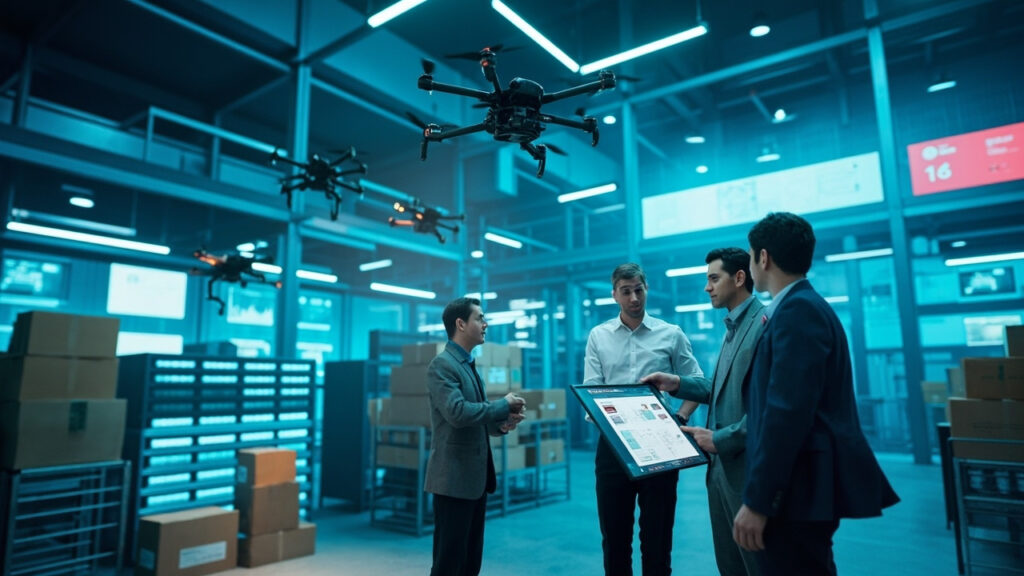
Understanding the Landscape
The delivery sector is at a pivotal point. Faced with escalating order volumes, heightened customer expectations for rapid delivery, and the imperative to reduce costs, companies are compelled to seek innovative solutions to remain competitive. Traditional logistics and delivery management strategies are quickly becoming obsolete in this dynamic setting.
Key Challenges
- **Increasing Delivery Volumes**: The surge in online shopping has dramatically increased the number of deliveries, straining the existing logistical frameworks.
- **Elevated Consumer Expectations**: Today’s consumers expect quick, often same-day delivery for their online purchases, presenting a logistical dilemma.
- **Cost Management**: It is crucial for businesses to balance prompt delivery services with cost efficiency, especially as they strive to offer free or low-priced shipping without diminishing profit margins.
Opportunities for Innovation
These challenges have also paved the way for significant innovation. Emerging technologies, particularly AI and machine learning, are poised to redefine service standards within the delivery industry.
Leveraging AI for Enhanced Route Optimization

The Role of AI in Route Planning
Optimizing delivery routes is crucial for ensuring that goods are transported using the most efficient paths available. AI dramatically improves this process by analyzing large datasets, which include traffic conditions, weather, and delivery schedules, to identify the best routes in real time.
Impact on Delivery Times and Costs
AI-driven route optimization enables companies to achieve faster delivery times and reduce fuel consumption, leading to significant cost savings and a smaller carbon footprint. Additionally, such systems are adept at adapting to unforeseen circumstances like traffic disruptions or road closures, thereby minimizing potential delays.
Case Study: Implementing AI in Route Optimization
A prominent logistics company implemented an AI system to enhance its route optimization and witnessed a 20% reduction in delivery times and a 15% cut in fuel expenses. This not only bolstered customer satisfaction but also positively impacted the company’s financial health.
Enhancing Customer Service with AI-Powered Chatbots
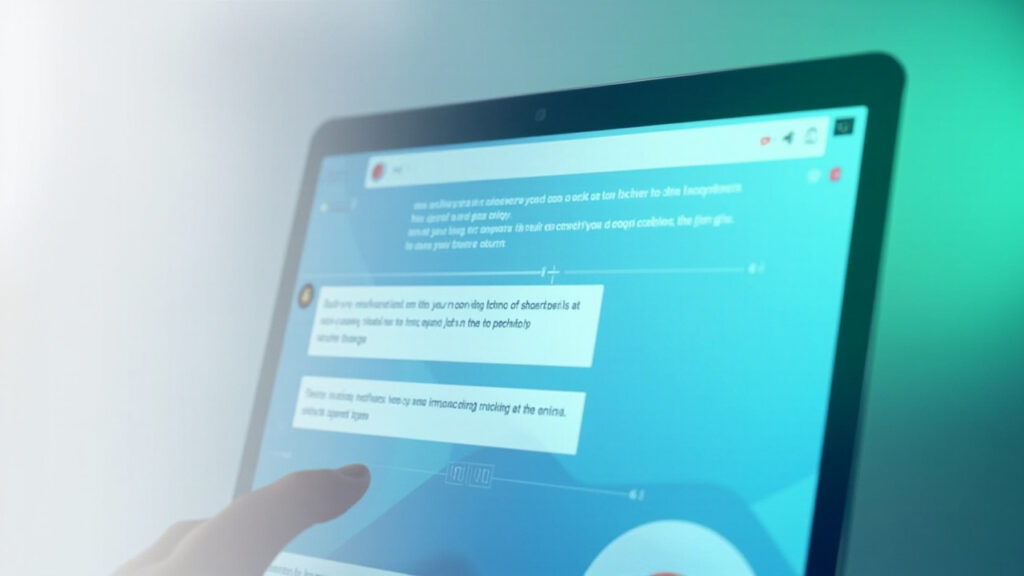
Transforming Customer Interactions
The introduction of AI-driven chatbots has revolutionized customer service within the delivery industry. These chatbots offer immediate responses to customer queries, provide real-time package tracking, and manage complaints and returns, significantly enhancing the overall customer experience.
Benefits of AI Chatbots
Available 24/7, AI chatbots reduce the need for extensive customer service teams and significantly decrease customer wait times. They are also capable of handling multiple queries simultaneously, ensuring efficient and effective service.
Example: Success Story of AI Chatbots in Action
An e-commerce titan deployed AI-powered chatbots for customer service interactions and recorded an 80% improvement in customer satisfaction rates along with a 30% reduction in call center operational costs.
Streamlining Warehouse Operations with AI
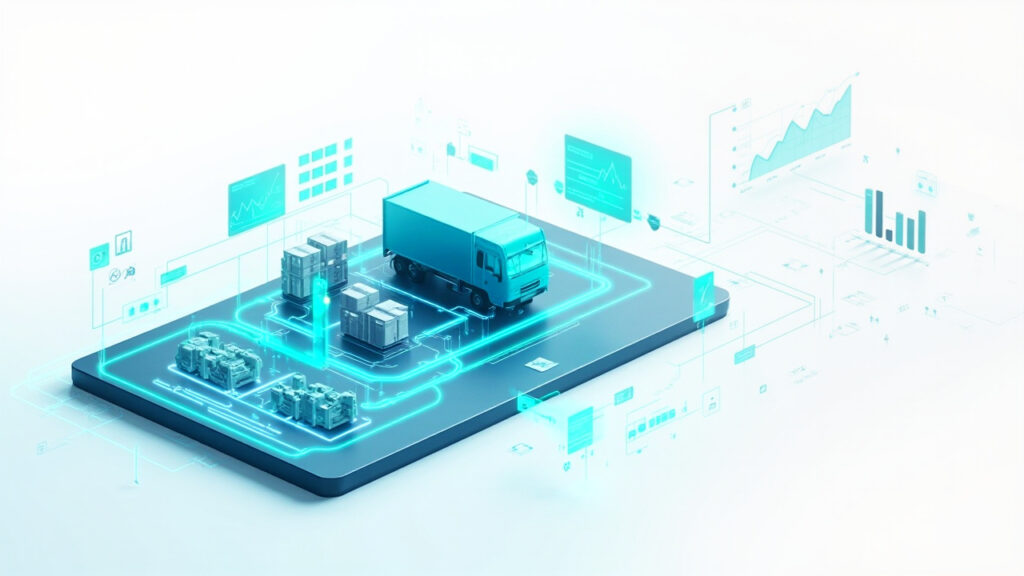
AI in Inventory Management
AI is increasingly being utilized to streamline operations in warehouses, especially in inventory management. AI systems predict stock levels accurately, automate restocking procedures, and even identify and rectify inventory discrepancies.
Improving Efficiency and Accuracy
Through AI, warehouses can operate more efficiently, reducing the time required to process orders and enhancing shipment accuracy. This not only cuts operational costs but also boosts customer satisfaction by ensuring orders are correctly fulfilled and promptly dispatched.
Real-World Application
A logistics firm employed AI to revamp its inventory management system, which led to a 25% reduction in order processing time and a 40% decrease in inventory inaccuracies.
Integrating GenQE in Delivery Service Software
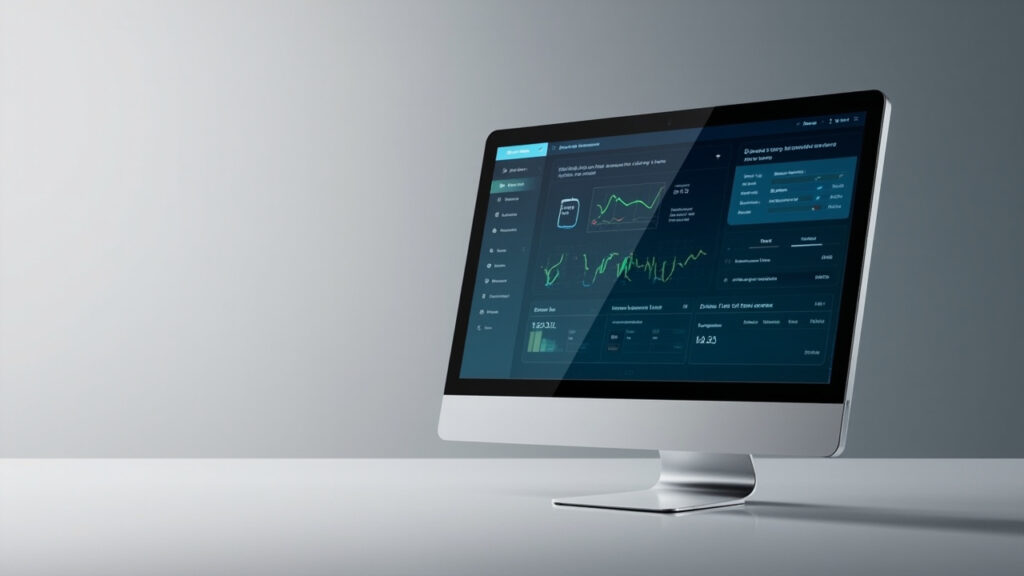
Subtle Integration of GenQE
Incorporating sophisticated AI tools like GenQE can significantly enhance the quality and functionality of software used in delivery services. GenQE leverages AI for test generation and smart test execution, ensuring that logistics software performs reliably under various scenarios—critical for maintaining high service quality.
How GenQE Enhances Software Reliability
GenQE automates the creation and testing of cases, which reduces the risk of software failures that could result in delivery delays or errors. Its self-healing capabilities minimize downtime, ensuring that delivery operations continue unabated by software issues.
Case Example: GenQE in Action
A regional courier company integrated GenQE to enhance its delivery scheduling software. The implementation led to a 50% reduction in software-related delivery issues, significantly elevating reliability and customer trust.
The Future of AI in Deliveries: Trends and Predictions
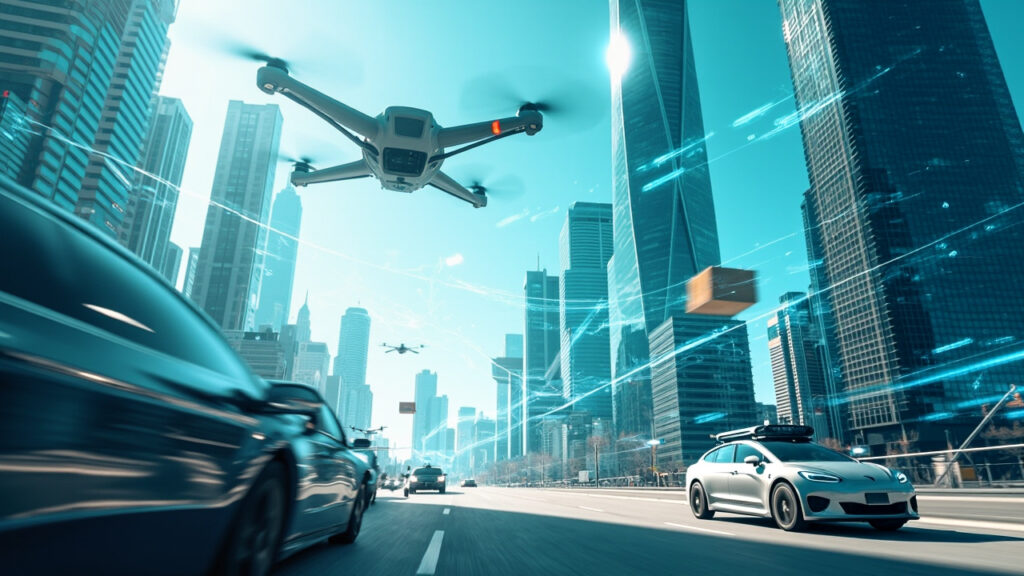
Looking Ahead: AI’s Role in Future Deliveries
As AI technology evolves, its influence on the delivery industry is anticipated to expand significantly. Future developments may include autonomous delivery vehicles, drone-based delivery systems, and more sophisticated AI-driven logistics planning.
Predictions for the Next Decade
Experts forecast that within the next decade, most urban deliveries will be executed by autonomous vehicles or drones, with AI systems managing logistics from warehouse to customer doorstep.
Conclusion: Embracing AI for Future-Proof Delivery Services
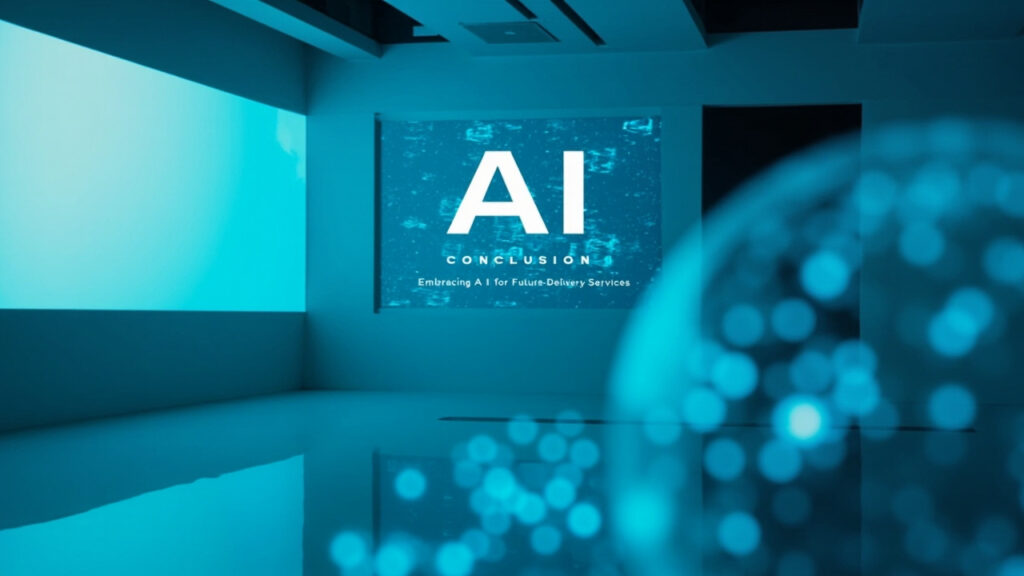
Integrating AI into delivery services is increasingly becoming a necessity rather than a mere enhancement. As explored, AI significantly impacts various aspects of delivery operations, from route optimization and customer service to warehouse management. Tools like GenQE add layers of reliability and efficiency, ensuring that the software systems supporting these services are robust and effective.
For companies in the delivery sector, investing in AI technologies such as GenQE is not just about keeping pace with current trends but also about leading the charge towards future innovations. As delivery services continue to evolve, the integration of AI and logistics is set to become even more deeply intertwined, propelling forward-thinking innovations that could reshape the industry.
Explore how AI can transform your delivery services and consider integrating cutting-edge tools like GenQE to ensure your logistics software meets the highest standards of quality and reliability.
Discover More Innovative Solutions
Want to learn more about the tools and technologies discussed in this article? Explore how these innovations can be tailored to your specific needs and workflow requirements.
Our team of experts is available to answer your questions and provide personalized insights into how modern solutions like GenQE can address your specific challenges.